Warehouse management software allows businesses to optimize their supply chain process, improve warehouse efficiency, and manage order fulfillment.
With the rise of eCommerce merchants, global markets, and rising customer expectations, the warehouse management system has become a crucial tool.
Most WMS software provides automated solutions to speed up the supply chain process from when inventory enters the warehouse until it reaches the customer.
The platform offers real-time visibility into inventory, automated order tracking, and intelligent forecasting to reduce costs and meet customer expectations.
Geekflare tested various warehouse management software programs based on ease of use, integration capabilities, reporting, order tracking, automation, and more.
Note: Pricing for most WMS solutions is unavailable. Readers may request a demo or explore trial options.
- Sortly – Best for Small to Medium Businesses
- NetSuite – Powerful ERP-Integrated Solutions
- Fishbowl – Best All-In-One Inventory Management Solution
- SphereWMS – Best for High Volume Orders
- Infoplus – Best for E-commerce Businesses
- Softeon WMS – Best to Manage Labor and Yard
- Extensiv 3PL Warehouse Manager – Best For Cloud-based Order Management
- Mecalux WMS – Best For Managing Complex Warehouse Operations
- EPG LFS WMS – Best For Customization Flexibility
- Generix Solochain WMS – User-friendly & Configurable WMS
- Blue Yonder WMS – Best for Holistic Warehouse Optimization
- Infor WMS – Offers 3D Visual Analysis
- Logiwa – AI-powered Fulfilment Management System
- Manhattan WMS – Best for Predictive Supply Chain Operations
- Oracle WMS – Best for Global Enterprise
- SAP EWM – Best for Space Optimization
- Show less
You can trust Geekflare
At Geekflare, trust and transparency are paramount. Our team of experts, with over 185 years of combined experience in business and technology, tests and reviews software, ensuring our ratings and awards are unbiased and reliable. Learn how we test.

Sortly
Best for Small to Medium Businesses
- Mobile AppYes
- IntegrationsQuickBooks, Slack, Teams, Webhooks
About Sortly
Sortly is a cloud-based warehouse management software that lets you manage inventory from any device. It offers various core features for small and medium-sized businesses, including inventory tracking, supply management, and asset tracking.
Because of its unified dashboard, Sortly is used across various industries, including construction, medical, education, NPOs, and interior design. That platform allows easy customization and organization of inventory with a click.
Founded in 2013, Sortly is headquartered in California, US. It is used by over 15,000 brands, including Sephora, Schneider Electric, and Chewy.
Sortly Features
Ability to customize inventory with custom folders and fields and customize user access.
Easy tracking with barcode and QR code scanning.
Offline inventory updating and tracking.
In-depth and customizable reports with low stock, item flow, and activity history.
Integrates with popular third-party tools, including Slack, QuickBooks, and Microsoft.
Sortly Pros/Cons
Easy data backups and syncing.
Webhook and API integration.
14-day free trial.
Limited third-party integrations
Does not include SSO sign-in on low-tier pricing plans
Sortly Pricing
| Plan | Pricing (monthly) | Offerings |
|---|---|---|
| Free | $0 | 100 unique items, 1 user license |
| Advanced | $24 | 500 unique items, 2 user licenses, Unlimited QR label creation |
| Ultra | $74 | 2,000 unique items, 5 user licenses, Purchase orders, Unlimited QR label creation |
| Premium | $149 | 5,000 unique items, 8 user licenses, Custom roles, QuickBooks integration |
| Enterprise | Custom | 10,000 unique items, 12 user licenses, API and webhooks, Dedicated customer success manager |
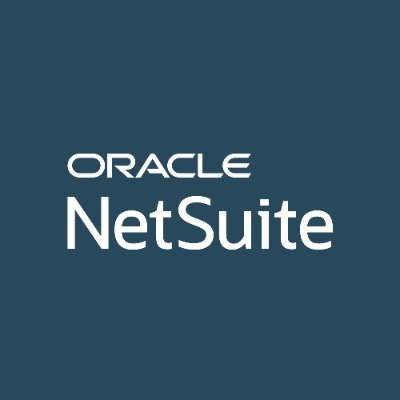
NetSuite
Powerful ERP-Integrated Solutions
- Mobile AppYes
- IntegrationsREST API, SOAP Integrations
About NetSuite
NetSuite WMS by Oracle is a leading WMS software that optimizes day-to-day warehouse operations with practices such as RF barcode scanning, task management, return authorization receipts, and cycle count plans.
NetSuite integrates with applications that communicate seamlessly with inventory management systems, order fulfillment, and manufacturing systems. NetSuite WMS comes as an add-on module in the NetSuite ERP.
The WMS offers benefits like improved data capture and accuracy, optimized space utilization, a boost in labor productivity, and much more. NetSuite was founded in 1998 and is headquartered in California, US.
NetSuite Features
Easy inbound logistics management with predefined storage strategies.
Efficient bin management for efficient inventory organization.
Real-time inventory count without interrupting transactions.
Data tracking for easy put-away and picking-up.
Barcode and QR code scanning for automated data input.
NetSuite Pros/Cons
Easy-to-use mobile application.
Offers integration through REST, API, and SOAP web services.
Drag-and-drop widget-based central dashboard.
Complex setup and onboarding.
Limited customization options in the dashboard and workflows.
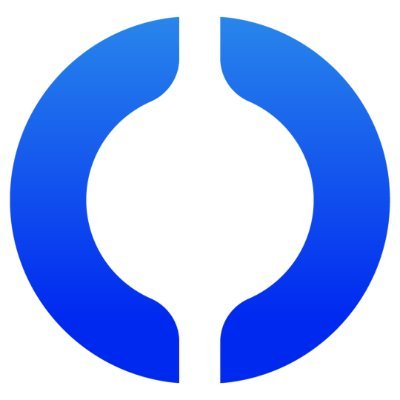
Fishbowl
Best All-In-One Inventory Management Solution
- Mobile AppYes
- IntegrationsShopify, Xero, Salesforce, UPS, QuickBooks, HubSpot, ShipRush
About Fishbowl
FishBowl is an end-to-end inventory management and warehousing software that offers order fulfillment tools for physical warehouses, on-the-go inventory, 3PL, and drop shipping. This cloud-based system offers various solutions for streamlining inventory management, warehouse operations, and manufacturing processes.
FishBowl boasts a robust automated purchasing platform and features for vendor management, purchasing, approval processes, receiving goods, and reconciliation. FishBowl caters to various industries, including Automotive, Pharmaceutical, Healthcare, Food and beverage, and Chemicals.
FishBowl was founded in 2001 in Utah, United States.
Fishbowl Features
Real-time inventory management across multi-location operations.
Vendor management is used to manage vendor relationships and keep track of vendor payments.
Parts time tracking with a single view into the inventories and bin management.
Offers third-party integrations with tools like QuickBooks, Xero, Shopify, HubSpot, ShipRush, and more.
Ability to create multiple warehouses in multiple locations.
Fishbowl Pros/Cons
Flexibility to customize dashboard and inventory.
Athena AI powers the insightful reporting.
Offer a free demo.
Regular updates and add-ons may cost extra.
Users have reported limited customer service support.
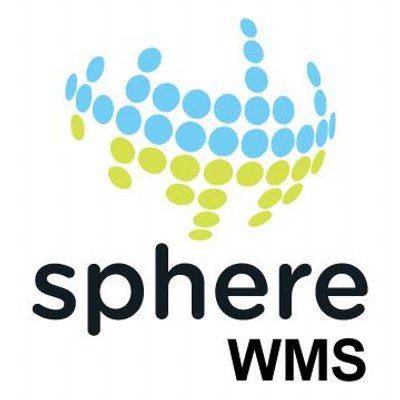
SphereWMS
Best for High Volume Orders
- Mobile AppYes
- IntegrationsSAP, Shopify, UPS, FBA, FedEx
About SphereWMS
SphereWMS is a multi-functional WMS that is considered best for high-volume orders. The platform comes with various features for inventory management, shipping, order fulfillment, kitting, replenishment, and pick-put management.
SphereWMS, which was founded in 2001 and is headquartered in the Western US, offers great flexibility and a strong feature set that will satisfy almost all industries.
SphereWMS Features
Cloud-based system for easy backups and data storage.
Customizable client portal that offers real-time access to inventory and order status.
Automated alerts for low stocks, expiration date notifications, and delivery status.
Detailed reporting, including real-time stock counts, inventory forecast prediction, and product aging reports.
Intelligent order fulfillment for simplifying complex bulk transactions and handling large-volume orders.
Pros/Cons
User-friendly mobile app interface.
Seamless integration with accounting, eCommerce tools, and shipping solutions like Shopify, Magento, WooCommerce, and more.
Custom reports with unique layouts and metrics.
Overwhelming to create reports.
Outdated UI.
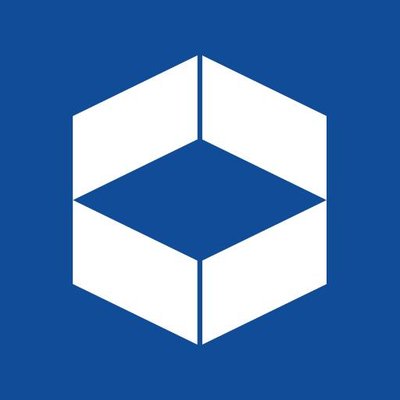
Infoplus
Best for E-commerce Businesses
- Mobile AppYes
- IntegrationsShopping Cart, EDI, Carrriers, Accounting
About Infoplus
Infoplus is a cloud-based WMS for businesses that want to streamline their warehouse processes. The platform offers solutions for streamlining the inventory management process and shipping.
Infoplus helps manage inbound receiving, order fulfillment, barcode, and document-related processes. It caters to the needs of industries such as Food & Beverage, consumer goods, and regulated goods.
Founded in 2013, Infoplus is headquartered in Missouri, US.
Infoplus Features
Excellent inventory management with quality control and warehouse planning.
Streamlined shipping and orders with better order management and automated systems.
Automated shipping process and flexibility in choosing shipping partners.
Automated order management with advanced features like order grouping, tags, triggers, and more.
Optimized workflow to track, monitor, and manage your orders.
Infoplus Pros/Cons
Real-time alerts and daily reports.
Powerful integration with accounting, carriers, shopping carts, EDI, and API.
Automatic QC workflows like barcode scanning, weight verification, and end-to-end tracking.
Steep learning curve.
Users complain that the system is slow because of the servers.

Softeon WMS
Best to Manage Labor and Yard
- Mobile AppNo
- IntegrationsEDI, ERP, Finance Systems
About Softeon WMS
Softeon is an on-premise, cloud-based warehouse management solution that provides real-time updates on inbound, outbound, and inventory management processes. The platform caters to various industries, including food and beverage, healthcare, retail, and manufacturing.
Softeon WMS is used by global clients such as Sears, Sony Music Group, and Integrated Business Systems. Founded in 1999, Softeon is headquartered in Reston, Virginia.
Softeon WMS Features
End-to-end inventory tracking with RF scanning and automated handling system.
Easy-to-use graphics tools and query functions for warehouse optimization.
Real-time voice functionality for greater control over the stock.
Rule-based engine for efficient order routing.
Labor productivity tracking and reports.
Softeon WMS Pros/Cons
Integrates with third-party EDI, ERP, and financial systems.
Distributed order management capabilities for managing high-volume orders.
Robust batch capabilities with advanced barcoding solutions.
Initial setup can be complex.
Not suited for large enterprise needs.

Extensiv 3PL Warehouse Manager
Best For Cloud-based Order Management
- Mobile AppYes
- IntegrationsShopify, PayPal, Magento, WooCommerce
About Extensiv 3PL
Extensiv 3PL Warehouse Manager is a comprehensive suite of cloud-based 3PL order management and warehouse management software. It provides various features sewn into a single platform, including billing automation, mobile barcode scanning, parcel ship
ping automation, and dock reporting. It also provides real-time information, great billing workflows, and many other features.
Extensiv 3PL was founded in 2006 and is headquartered in California.
Extensiv 3PL Features
Inventory management system that tracks all your products and saves information in the cloud.
Rule-based order routing for increased efficiency.
Automated pick, pack, and shipping workflows.
Integrates with third-party tools such as Quickbooks, Shipstation, WooCommerce, Magento, and Wix.
Mobile barcode scanning for real-time order tracking.
Extensiv 3PL Pros/Cons
Access to 60+ simple reports on Inventory Turns, Stock Status, Customer Pricing, Small Parcel Transactions, Freight Audits, Cycle counts, and more.
Easy to use and scalable for business.
Customized solutions for different businesses.
Poor mobile app UI.
Users have reported poor customer support.
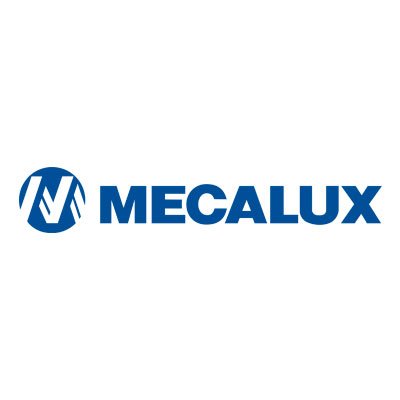
Mecalux WMS
Best For Managing Complex Warehouse Operations
- Mobile AppYes
- IntegrationsERP
About Mecalux WMS
Easy WMS by Mecalux streamlines warehouse systems of all sizes. The platform seamlessly controls, coordinates, and manages all the movements in the supply chain system with a track of profitability in all areas. Mecalux WMS offers two versions of warehouse systems: cloud-based and on-premise version.
Founded in 1966, Mecalux is headquartered in Barcelona, Spain.
Mecalux WMS Features
Real-time inventory control for stock monitoring.
Streamlined product workflows and information.
Seamless integration with any ERP system.
Easy flexibility, adaptability, and scalability for personalized usage.
Automated flow of information and processes.
Mecalux Pros/Cons
Configurable alerts for immediate incident detection.
Real-time tracking of order status, outbound numbers, and tracking numbers.
Available as SaaS and On-premise.
Does not integrate with any financial or shipping system.
Complex for beginners.

EPG LFS WMS
Best For Customization Flexibility
- Mobile AppYes
- IntegrationsERP, SAP
About EPG LFS WMS
EPG LFS is an integrated WMS system that connects all warehouse management systems and plans and controls the entire workflow. It covers employee and resource management for operation cost optimization.
It caters to the needs of various domains, including logistics services, food and beverage, automotive and spare parts, manufacturing, chemicals, pharmaceuticals and healthcare, e-commerce and fashion, and other industries.
Founded in 1987, EPG specializes in 23 global locations, serving over 1,600 companies in supply chain and warehouse management.
EPG LFS WMS Features
Works with various operating systems, such as Windows, Linux, and IBM iSeries (AS/400, i5), as well as on Android and iOS.
Smart order forecasting for accurate order management.
Supports various devices, including mobile devices, tablets, and desktop.
Ability to customize inventory, putaway, picking, and bin locations.
Flexible license that allows one license for all sites.
EPG LFS WMS Pros/Cons
Interface is available in 16 languages, including English, Spanish, French, and German.
24/7 customer support.
Centralized dashboard for all connected sites.
Integrations limited to ERP and SAP ecosystem.
Users have reported poor data quality.

Generix Solochain WMS
User-friendly & Configurable WMS
- Mobile AppNo
- IntegrationsERP, OMS, Supplier System
About Generix Solochain WMS
Generix by SOLOCHAIN is a highly configurable WMS system that excels in supply chain management and inventory control. This WMS provides various features, including an inventory management system, shipment tracking, and features for inbound and outbound productivity. Generix provides other solutions to create a well-rounded ecosystem with a warehouse management system.
Generix, founded in 1990 as an ERP system, is headquartered in Lille, France. It serves major brands, including DHL, Nestle, and Hitachi.
Generix Solochain Features
Real-time inventory visibility for tracking various items, including raw materials, components, packaging materials, and parts.
Built-in MES capabilities for inventory tracking.
Inbound and Outbound workflows for order management.
Integration with various ERP, OMS, and supplier systems.
Ability to print channel partner-compliant labels and reports.
Generix Solochain Pros/Cons
Embedded barcode label editor.
Scalable and customizable solution.
Automation into processes, workers, workflows, and products.
Complex setup.
Limited reporting features and inability to edit.

Blue Yonder WMS
Best for Holistic Warehouse Optimization
- Mobile AppNo
- IntegrationEDI System
About Blue Yonder WMS
Blue Yonder is an industry-leading warehouse management software that manages yard, inbound, inventory, resources, and outbound activities through a single platform. It optimizes the end-to-end warehouse processes using intelligent automation tools.
Blue Yonder operates in 75 countries and serves brands like DHL, Asian paints, and Mitsubishi Motors. Founded in 1985, It is headquartered in Arizona, US.
Blue Yonder WMS Features
Optimized inventory management with tailored replenishment rules and data control systems.
Smart yard management with detailed dock door management, door selection, and yard audits.
Intelligent automated systems for multi-method order picking, packaging, and sequenced loading.
System-directed algorithm for cycle counting helps with 99 percent accuracy.
Integrated labor management comprehensively measures tasks at all operational levels.
Blue Yonder WMS Pros/Cons
Pre-built implementation templates for faster processes.
Uses generative AI for better insights.
Easy-to-use interface.
Not suitable for small businesses.
Limited to EDI integration.
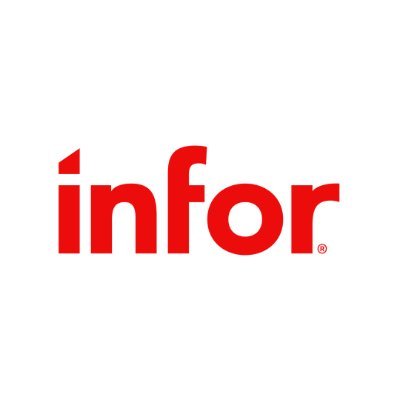
Infor WMS
Offers 3D Visual Analysis
- Mobile AppNo
- IntegrationsShopping Cart, Carrier, EDI, Accounting
About Infor WMS
Infor WMS is a tier-1, cloud-based system tailored to upper-segment distributors, manufacturers, and 3PLs. The platform includes advanced AI capabilities like 3D visualization, voice processing, embedded analytics, and more.
Infor WMS uses intelligent automation capabilities to perform functions such as receiving, put-away, picking, packing, shipping, and dynamic replenishment.
Founded in 2002, Infor WMS is headquartered in New York. It operates in over 145 countries and serves over 60,000 organizations.
Infor WMS Features
Real-time inventory tracking with configurable rotation rules.
Ability to create 3D visualization of warehouses and optimize workflows.
AI & ML enable streamlined warehouse planning, configuration, and inventory management.
Personalized services for kitting, bundling, and labeling.
Robust wave management using pre-set filters.
Infor WMS Pros/Cons
Dedicated Infor OS platform for the entire warehouse management.
Integration with other Infor ERPs such as financial tools, sales, HR management systems, and manufacturing.
Comprehensive supply chain capabilities, including S&OP and visibility platforms.
Does not integrate outside the Infor ecosystem.
Customizing the system can be complex.

Logiwa
AI-powered Fulfilment Management System
- Mobile AppYes
- IntegrationseCommerce, Shipping, Accounting, Robotics, EDI
About Logiwa
Logiwa WMS is an advanced cloud-based system that empowers AI capabilities for faster warehouse optimization. The tool offers various features to automate order fulfillment, inventory management, multi-warehouse processes, and more.
Its more advanced AI capabilities include advanced receiving, picking, putaway, shipping, and purchasing, along with barcoding and reporting modules.
Founded in 2017, Logiwa is headquartered in Chicago, US.
Logiwa Features
Location-based rules for inventory and warehouse optimization.
Real-time mobile reports with details into order progress and inventory.
Supports barcode scanning for shipping and picking.
Smart-picking jobs that identify similar orders, single and multi-orders with inventory management rules.
Rule-based and location-suggestion algorithms for automated receiving and shipping.
Logiwa Pros/Cons
Integrates with various third-party tools such as Shopify, Magento, Clickfunnels, Shipstations, and more.
High-level data security with Azure.
Customized screen layout options.
Steep learning curve.
Overwhelming for users who need a simplified warehouse process.

Manhattan WMS
Best for Predictive Supply Chain Operations
- Mobile AppNo
- IntegrationsERP, TMS
About Manhattan WMS
Manhattan WMS is tailored for high-volume retail orders. The platform offers a range of features for supply chain management and execution suitable for the food, grocery, shoe, and apparel industries.
Manhattan leverages top-tier automation tools to manage the entire enterprise from a single app, commanding fulfillment, labor, and automation. It is used by top brands, including Agro, Crocs, Scotch, and Soda.
Founded in 1990, Manhattan Associates is headquartered in Georgia, USA.
Manhattan WMS Features
Real-time digital representation of warehouse enabling employee and resource management.
Machine learning technology for automated order fulfillment.
Wider visibility into the warehouse’s inbound and outbound operations.
Advanced order streaming predicts the time taken to complete an order using various factors.
Dynamic workflows for orchestrating put-away, picking, slotting, sorting, and packing activities.
Manhattan WMS Pros/Cons
Personalized dashboard for insights into performance.
Scales up and down according to needs.
Accessible from any device and browser.
Requires add-ons for completing supply chain capabilities.
Not suitable for small businesses or startups.

Oracle WMS
Best for Global Enterprise
- Mobile AppYes
- IntegrationsOracle Apps, ERP, TMS
About Oracle WMS
Oracle WMS is a component of Oracle’s supply chain management suite that provides a comprehensive solution for boosting inventory visibility and logistics operations. The platform offers features such as real-time inventory tracking, advanced fulfillment strategies, and integration with other enterprise systems.
Oracle WMS is most suitable for enterprises that need customizability and scalability for complex warehousing operations. Founded in 1977, Oracle is headquartered in California, US.
Oracle WMS Features
End-to-end inventory management to streamline inventory operations from manufacturer to distribution center.
Single environment to serve multiple clients in multiple locations.
Improved data visibility that allows users to identify the bottlenecks and track their packages.
Built-in integration with material handling services and equipment.
Ability to create custom reports for external and internal needs, including cycle counts, ASN discrepancy, consolidation, and space utilization reports.
Oracle WMS Pros/Cons
Pre-integrates with a suite of Oracle apps such as ERP and TMS for enterprise needs.
Real-time visibility into inventory levels for risk mitigation.
Scalable solutions for adding users, warehouses, and locations.
Lack of various customizable workflows.
Requires add-ons for capabilities such as network data and maps.
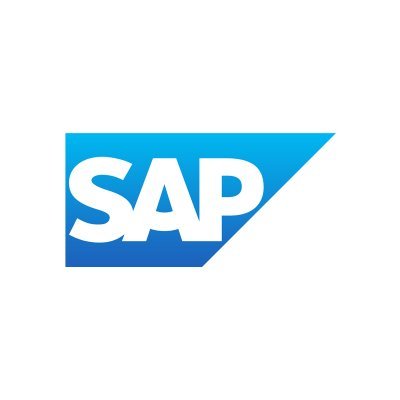
SAP EWM
Best for Space Optimization
- Mobile AppNo
- IntegrationsSAP and API integrations
About SAP EWM
SAP, a global leader in enterprise software, offers an extended warehouse management system that caters to the needs of enterprise-grade warehouses and distribution companies. The platform offers real-time visibility into warehouse operations and optimizes various processes from receipt to shipping.
Designed for enterprises, SAP EWM helps manage a high volume of goods and run sustainable, digitized warehouse operations. Founded in 1972, SAP is headquartered in Weinheim, Germany.
SAP EWM Features
Ability to synchronize warehouse operations inbound and outbound transportation management.
Streamlined inventory management with increased stock transparency.
Augmented reality and voice picking for optimizing outbound processes.
Scheduled dock appointments with the ability to manage batches and serial numbers.
Provides accurate reports using real-time data such as cycle count reports, stock count reports, and more.
Flexible picking for managing multiple customers’ orders in a single run.
SAP EWM Pros/Cons
Real-time insights into inventory using barcoding, RFID tagging, or sensors.
Intelligent slotting rules to optimize space.
Integration with various SAP marketplace tools such as shipping tools, automation, and compliance frameworks.
Less affordable for small businesses.
Requires extensive knowledge of SAP.
What Features To Look for in Warehouse Management Software?
There are several key features to look at when choosing a warehouse management system. Let’s look at these features:
- Inventory management: WMS should enable the management of inventories to prevent overstocking. This ensures that you don’t run out of supplies or order products beyond level.
- Order management: It should include the ability to manage orders and fulfill them, as well as the ability to track order receiving, packing, and picking.
- Real-Time Inventory Visibility: Businesses should have real-time updates on their inventory stocks, SKUs in specific locations, and updates on customer demand.
- Integration capabilities: The WMS system should offer direct integrations with various tools, such as accounting, eCommerce, logistics, and others.
- Barcode and RFID Support: To improve accuracy in inventory management, the WMS should offer support for barcode and RFID scanning, enabling multi-product tracking.
- Labor Management: The chosen WMS should have the ability to optimize workforce productivity and effectively manage employee tasks. This feature ensures that the right number of staff are working at the right time.
- Warehouse optimization: The chosen software should offer optimized warehouse operations through automation and advanced technologies. This ensures an increase in time, space, and resources in a warehouse.
- Reporting and analytics: The WMS should be data-driven and offer various reports for tracking warehouse performance. Look out for reports such as cycle count reports, inventory stock reports, order fulfillment reports, vendor reports, and more.
What are the Benefits of Implementing Warehouse Management Software?
Warehouse Management Software (WMS) offers numerous benefits that can significantly enhance the operational efficiency of warehousing. Here are the benefits that it offers for the businesses:
- Increased efficiency: Handles various complex or mundane warehouse tasks using a single interface. By automating and optimizing the workflows, businesses can streamline several warehouse processes, such as receiving, picking, packing, and shipping, resulting in higher efficiency.
- Inventory accuracy: Provides better insights into inventory using real-time tracking, barcode scanning, and automated inventory updates. This accounts for higher accuracy and reduces discrepancies between physical stock and recorded data.
- Cost reduction: As businesses get more insights into their inventory stocks, resources, and labor management, they can significantly cut costs and lower operational expenses.
- Faster order fulfillment: Allows for quicker order processing by optimizing picking and packing operations. Features like batch picking, wave picking, and zone picking help fulfill multiple orders simultaneously and speed up delivery times.
- Inventory visibility: Offers real-time visibility into inventory levels and stock levels at different locations. Using this data, businesses can respond promptly to inventory fluctuations and bridge the supply gap.
What are the Most Common Warehouse Management Challenges?
Businesses face various challenges in managing warehouses and streamlining operations. Here are some of the most common challenges:
- Poor inventory management: Inaccurate information on stocks can result in overstocking, resulting in wastage of resources.
- Inefficient space utilization: Warehouses may face space shortages if they have poor layout design, improper shelving, and lack of organization. This inefficiency can hinder warehouse operations and reduce inventory volumes.
- Flawed order fulfillment processes: Businesses may face issues tracking and fulfilling orders. Common issues such as unclear picking instructions, poorly organized picking routes, and insufficient training can result in order delays.
- Supply chain delays: Various unpredictable factors, such as transportation issues, supplier delays, or unexpected demand, can result in supply chain disruption. Businesses may face order fulfillment challenges or issues with inventory management.
- Ineffective quality control: Regular quality control helps maintain product integrity and brand reputation. Businesses may often follow improper quality control measures, resulting in damaged goods, returns, and customer complaints.
- Suboptimal labor management: Poor workforce management can result in order delays and a poor customer experience. Warehouses often experience overstaffing or understaffing, which impacts their costs and productivity.
- Ignoring seasonal fluctuations: Many businesses experience seasonal variations in demand. Failing to plan for these fluctuations can lead to inadequate stock levels during peak seasons or excess inventory during slower periods.
More Readings on Supply Chain
-
 EditorRashmi Sharma is an editor at Geekflare. She is passionate about researching business resources and has an interest in data analysis.
EditorRashmi Sharma is an editor at Geekflare. She is passionate about researching business resources and has an interest in data analysis.


